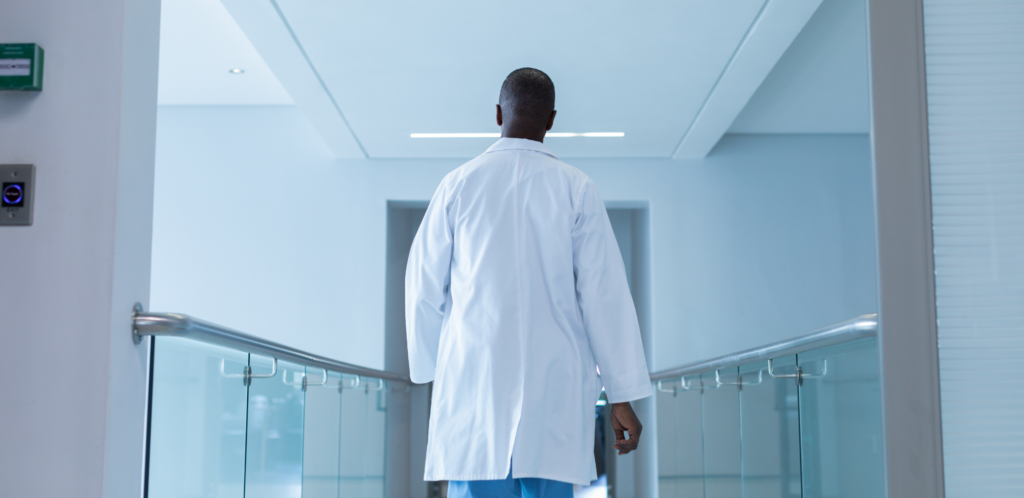In recent weeks hospitals have been boosted by elective surgeries returning and patient confidence shifting in a more positive direction.
And while our ‘new normal’ is still fluid, steady and small wins against the virus provide reason for hope. This means that emergency rooms that would have seen nearly 250 patients a day in pre-Coronavirus times are back up to seeing 100 to 200 patients in cities like Chicago. Recent analyses show that more non-COVID-19 patients are expressing higher levels of confidence, particularly over the last month. A new Gallup poll released on June 1st and based on survey results gathered May 14th-24th, show that concern about COVID-19 at medical facilities has dropped:
- 64% of Americans are very (22%) or moderately (42%) concerned about being exposed to the virus while receiving necessary medical treatment. This marks a 20-percentage-point drop from late March/early April.
- Concerns about capacity at hospitals have eased, and the use of face masks is up, both of which may be contributing to the public’s lessened concern.
The Importance of Timely Care
Recent data further backs up the fact that there are serious repercussions to patient health due to COVID-19 fears. Some patients are facing health issues because of pandemic-related delays in care, including skyrocketing blood pressure and other side effects, reports the Chicago Tribune. Other news outlets are expressing a like-minded sentiment: Skipping medical care during the Coronavirus pandemic is a troubling pandemic byproduct, reports Fox News. Reference the Kaiser Family Foundation’s KFF Tracking Poll of May 20th for data that validates this concerning premise:
- Nearly half of adults (48%) say they or someone in their household have postponed or skipped medical care due to the Coronavirus outbreak.
- A higher share of women than men (54% versus 42%) have postponed or skipped medical care during the pandemic.
- 11% of adults overall say they or their family member’s condition got worse as a result of postponing or skipping medical care due to Coronavirus fears.
- As restrictions ease state by state, most (68% of those who delayed care, or 32% of all adults) expect to get the delayed care in the next three months.
“Patients are having bad health outcomes because of untimely care. It’s terrible, and it’s frightening to see that,” said American College of Emergency Physicians (ACEP) President-elect, Mark Rosenberg, MD in a recent Chicago Tribune article. According to a director of emergency medical services also quoted, “Instead of anginal chest pain, patients are having an acute heart attack and injuring the heart.” To put a stamp on the seriousness and reasoning of why not to delay care, a Journal of the American College of Cardiology study focused on admissions for a STEMI heart attack. The study indicates that patient admissions had dropped 38% after March 1, after the pandemic hit. Pushing the standard that “timely care is important,” ACEP advises this: While following social distancing guidelines, it’s critical to always know when to go to the emergency department.
“Some patients are facing health issues because of pandemic-related delays in care, including skyrocketing blood pressure and other side effects …”
No Time Like the Present
In keeping with patients who have put off going to an ER for chest pain, there are countless others who have either refused or were unable to get the caliber of treatment needed for a variety of chronic conditions once the onslaught of the pandemic hit hard. However, now with reopening, the byproduct of COVID-19 is no longer hidden. Patients have come into hospitals with a range of issues, including out-of-control asthma, mental health trauma and even chronic kidney failure.

I think these independent polls have value because their conclusions are relatively similar, and the data revealed can help to validate choices made as facilities and providers keep moving forward, reschedule non-essential surgeries and welcome more patients back. A look at an ACEP public poll reveals more evidence from 2,200 adults surveyed in mid-April. This poll emphasizes emergency care concerns amidst COVID-19. The results touch on several bullets, including that 29% or nearly a third of respondents had delayed or avoided medical care due to COVID-19 concerns.
To bring non-COVID-19 patients back through facility doors, we see no hesitation for clear-cut messaging like “Don’t Delay Needed Care.” That’s direct from a North Carolina medical center informing their patients and the community about the importance of getting medical help when it is needed the most. “It is important to not delay care like well checks and other preventive appointments, and you should continue to take your medicine as prescribed by your doctor. Delaying care can lead to complications and advanced stages of disease.”
Convincing the Public
Hospitals have taken on many adversities during this pandemic. Over the past few months facilities and providers have proven the fortitude of the medical community. Obstacles and all. Hayes Locums is proud of our clients and the providers who work for them. Now, you face yet another task of reeducating the public on what is being done to ensure that hospitals are safe and prepared for non-COVID-19 patients. Pair that enormous undertaking with the challenge of also continuing to safeguard your staff. As always, we are here to help and support, as needed.





